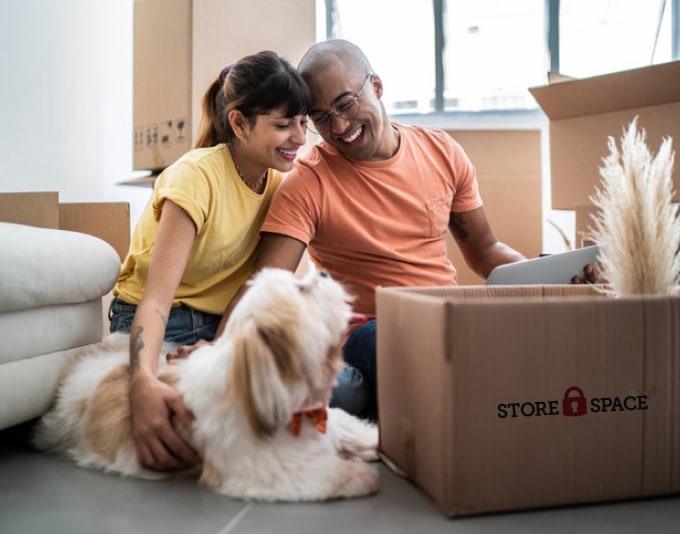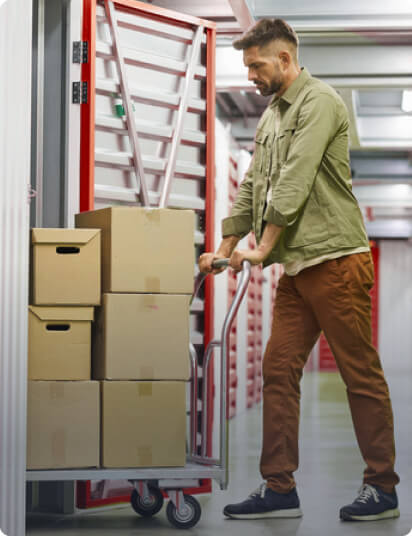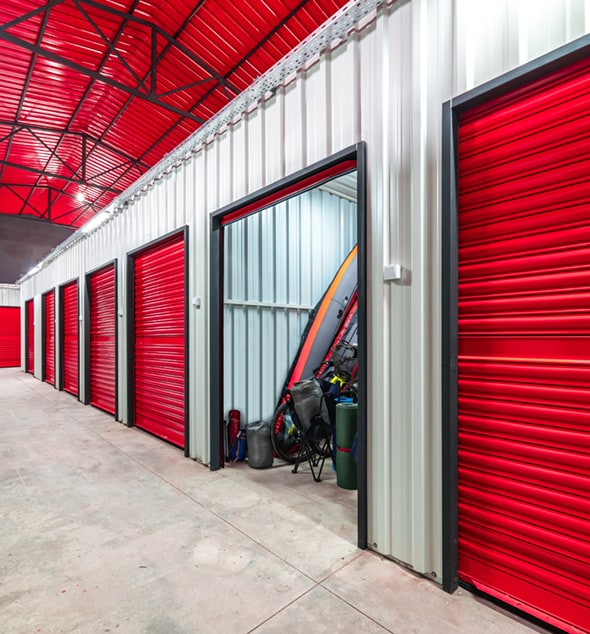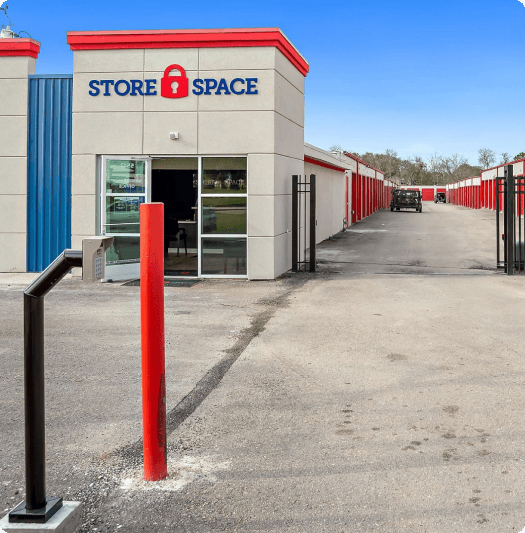9 Helpful Moving Tips to Make Moving-In Easy
.jpg?sfvrsn=b542bcac_0)
Moving tips can come in handy whether you’re going around the block or across the country. If you’ve ever gone through a life transition like moving, you know it can be very disruptive. So we’ve compiled a list of some of the things that have helped us enjoy moving day, rather than dread it.
Utilities? Wi-Fi? Cleaning supplies? These are just a few of the tips that can keep a move-in from turning into a fiasco.
Here Are Our Top 9 Moving Tips for Moving-In
We’ve put together a list of moving tips to keep in mind while moving in. Plus, in case you need more room while you’re settling into your new space, we have the perfect spot. Just rent storage from Store Space.
1. Check It Out
You pull up to your new house or apartment and are anxious to get everything inside.
We get it, but take a moment before you start hefting those boxes and unpacking, it’s a good idea to do a walkthrough of your new place. This is one of the most important moving tips you’ll hear. You want to make sure there isn't any new damage from the previous owners or tenants, and that everything they agreed to do has been cared for. (If not, get ahold of your Realtor or management company ASAP!)
You should also make sure all fixtures, outlets and switches are in working condition, and take a minute to check your utilities—water, electric, gas, heating and cooling. (Here’s a reminder to set up your utilities and internet/cable before you start moving in.)
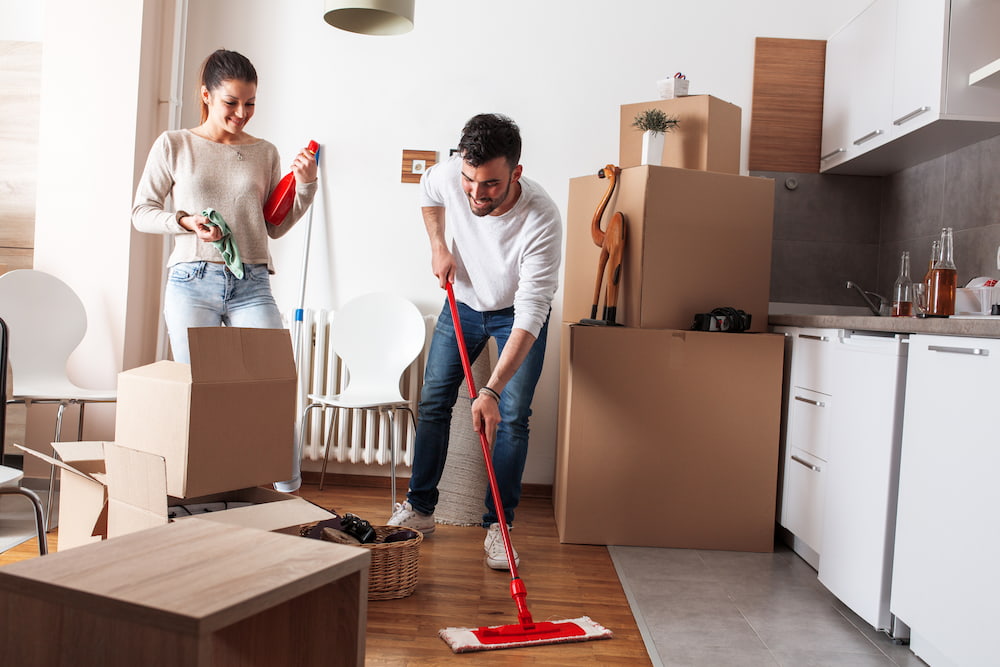
2. Clean, Clean, Clean!
The perfect time to deep clean your new house is before you put everything in it, or when as little is moved in as possible. Obviously, this won’t be the only time you clean, but you want a fresh start, right?
Pro tip: Pack an easy-to-find box dedicated to cleaning supplies, like disinfecting wipes, scrubbing bubbles, paper towels, sponges and so on. Clean from top to bottom, then sweep/mop/vacuum the floors last. Cleaning may be the last thing you want to do after the stress of moving, so if that’s the case—hire a professional cleaning company to do it for you!
3. Protect Your Floors
Before you start taking those boxes from the back of the car or moving truck and bringing them to your new home, don’t forget to protect your floors! Be sure to put down either pieces of plastic, cardboard or mats to keep areas and walkways from getting scuffed and damaged from the move.
Pro tip: Hiring a professional moving company isn’t necessary, but it definitely saves you some heavy lifting. Plus, pro movers will often put something down on the floors before getting started. Here are some things to consider when hiring a moving company.
4. What’s Going Where
Before you start putting everything in your new home, you need to map out where everything will go. This moving tip will help whether you’re moving yourself or are getting the help of professionals—you don’t want to be moving heavy boxes from room to room because they don’t fit or are in the wrong place.
Pro tip: If you’re reading this article ahead of time, remember—labeling your boxes is a game-changer. While you’re packing, make sure you label the box on the top and one or more sides, with the room it belongs in, and briefly what items are inside.
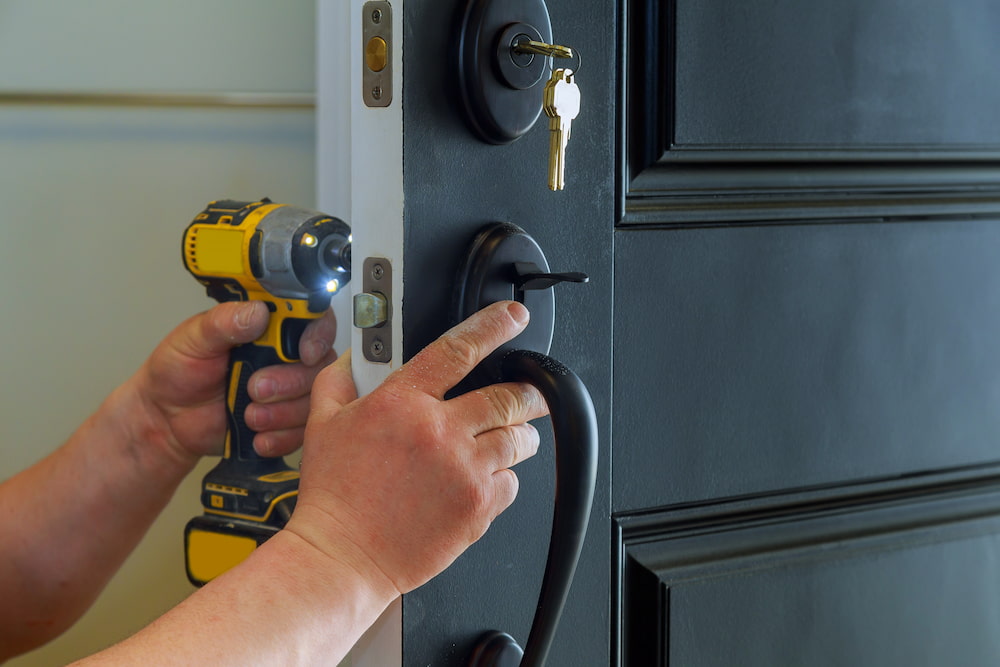
5. Change Your Locks
It may seem like a hassle to call a locksmith to change your locks, but it’s a crucial moving tip—you don’t know exactly how many keys to your new place are out there. If the previous owner made copies of the keys, or still has one, guarantee you and your loved ones are the only ones with access by rekeying your locks.
Pro tip: If you don’t want to pay for a locksmith to come and change your locks, watch or read one of the many videos or articles online to do it yourself. Note: If you're in an apartment, rekeying the locks might not be an option, but it's worth asking the management company if they will help.
6. Pack Your Essentials Separate
You might as well pack another bag after packing up your whole house, right? It’s actually a good idea to have these moving essentials. Don’t put items you’ll need right away in the back of the truck—things like toiletries, toilet paper, dinnerware, food, bedding and anything else you might need the first few days should be easily accessible.
Pro tip: It’s also a good idea to keep all your valuables (like laptops, other electronics, jewelry, etc.) with or on your person while you move. There is a lot of commotion while you’re moving in, and it’s safer and more comforting to know where your closest possessions are.
7. Change Your Address
Whenever you move, it’s important to update your address. There are several people you need to notify that you’ve moved, including the post office, utility companies, cable/internet provider, your employer, and the bank.
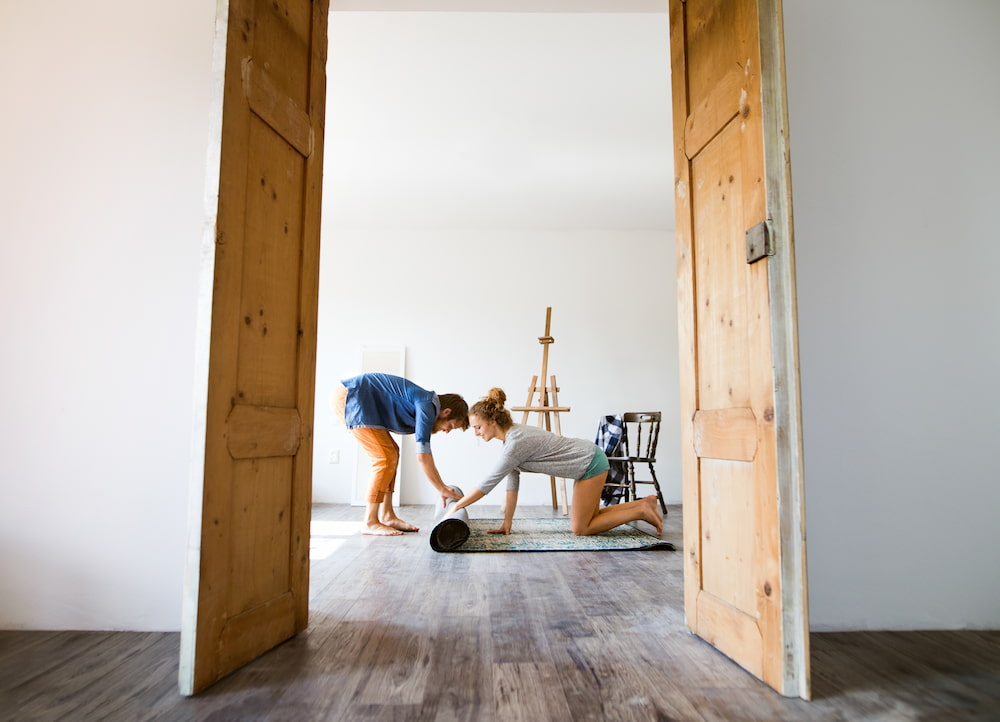
8. Start Unpacking
Congratulations! It’s officially time to start unpacking all your boxes, bins and belongings. But, before you go crazy, remember to give yourself a break. Make a goal to unload a certain number of boxes each day, but take some time to rest and enjoy your new home, too!
9. Throw a Party!
Yep, you read that right—throw a housewarming party! After moving, unpacking and checking things off your list, it’s time to celebrate your new home. Invite your friends, family and neighbors.
Pro tip: Gatherings like this are a great place to meet people in your neighborhood. (You never know when you might need a cup of sugar!)
Moving Tips FAQs
Q: What’s the first thing to do when moving into a new house?
A: When you first move into a new house, you should do a walkthrough, figure out where you’re going to put everything, check utilities, clean and change your lock and address!
Q: How do you move to a new place quickly?
A: In order to move quickly, you should start by securing your moving company then declutter. When you’re packing, don’t worry about sorting or organizing—you won’t have time if you’re in a rush. Finally, when you’re trying to move fast, ask for help! Family and friends can make all the difference.
Q: What should you not bring to a new house?
A: When you’re moving into a new house, you’re probably looking for a new beginning. So, why bring things you don’t want or need into your fresh space? Don’t move temporary furniture, stacks of paper you don’t need, excess magazines or books (if you can live without them), clothes you never wear, or expired items.
Q: What’s the luckiest day to move into a new house?
A: In case you were wondering, it’s rumored that Thursday is the luckiest day to move into a new house.

Summing Up: Moving Tips to Make Moving-In Easy
We hope these moving tips have helped you move into your starter home, forever home, or any in-between. Moving can be an overwhelming process, so these tips should make it easier. If you're looking for more moving tips, make sure to check out our blog about how to move to another state.
Whether you moved too much stuff into your new home, or you need to keep some large items like furniture and appliances in a storage unit until your house is ready, we’ve got you covered. Store Space is here to help however we can!
Just check out our storage location finder to locate the facility nearest you.
We care about you, making moves!


